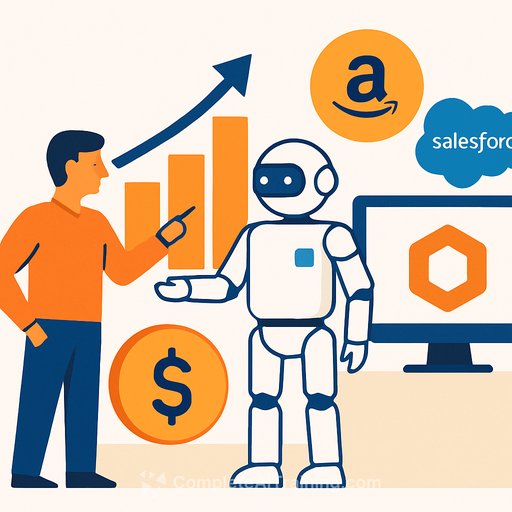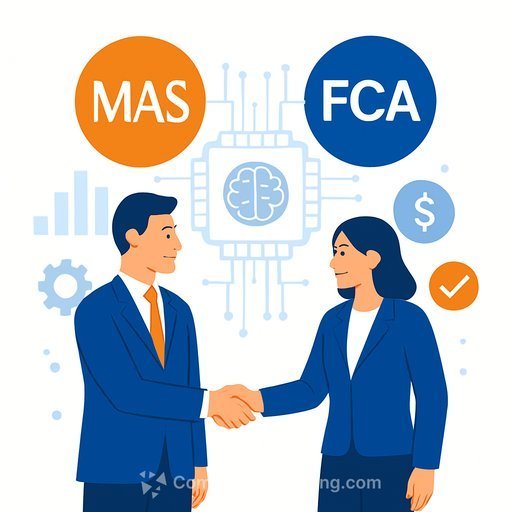AppZen Raises $180M To Push Agentic AI Deeper Into Finance Operations
AppZen secured $180 million in Series D funding led by Riverwood Capital, bringing total funding to $290 million. The round was an up round; valuation was not disclosed. Founded in 2012 by CEO Anant Kale and CTO Kunal Verma, the San Jose company has focused on AI for finance from day one.
AppZen's platform uses agentic AI to automate travel and expense, accounts payable, and card workflows. It integrates with ERP systems such as SAP and Oracle, aiming to remove manual review work while keeping teams in control.
Why finance leaders should care
- Move beyond offshoring and rule-based tools that stall at edge cases.
- Use AI agents to review, decide, and take action across core workflows with audit trails.
- Deploy without heavy IT lift using AppZen's Mastermind AI Studio (no-code agent builder).
- Tight ERP integration means you don't have to rip and replace core systems.
What AppZen actually does
The company blends its proprietary models with large language models and a new Mastermind AI Studio to create "digital workers." These agents read invoices, receipts, statements, and emails; cross-check policies and contracts; and execute approvals or exceptions inside existing systems.
Use cases include expense audit and policy enforcement, vendor validation, duplicate detection, PO/3-way matching, and cross-border document handling. The stated goal: reduce manual touches while increasing accuracy and speed.
Traction that matters to CFOs
- More than 500 enterprise customers; 65 are in the Fortune 500.
- Logos include Amazon, Salesforce, JPMorgan Chase, Airbus, and Databricks.
- AppZen reports it is cash flow positive, with 300+ employees.
Investor lens
Riverwood Capital backed the round citing proof at scale with global enterprises. The thesis: finance is moving from manual checks and basic automation to true autonomous operations, and AppZen is becoming an orchestration layer for CFO teams where AI agents connect and run workflows across borders and languages.
What this could mean for your P&L
- Lower processing costs in AP and T&E without adding headcount.
- Faster closes and cleaner accruals through continuous, AI-driven review.
- Reduced leakage via tighter policy enforcement and fraud detection.
- Improved working capital from more accurate matches and better discount capture.
How to pilot it (simple playbook)
- Pick one workflow with measurable pain (e.g., duplicate invoices or late approvals).
- Define baselines: cost per invoice, touch rate, cycle time, accuracy, and exception rate.
- Connect to your ERP sandbox; limit scope to one region or business unit for 60-90 days.
- Set policy guardrails and approval thresholds the agents must follow.
- Track weekly: precision/recall on exceptions, latency, user overrides, and financial impact.
- Scale only after you hit thresholds (e.g., 95% precision on exception flags, 50%+ touch reduction).
Risk and control considerations
- Data governance: lock down PII and vendor bank data; restrict prompts and outputs.
- SOX/ITGC: ensure full action logs, role-based access, and reproducibility of decisions.
- Change management: train approvers on when to accept, override, or escalate agent outputs.
- Procurement alignment: refresh vendor terms to allow AI-based processing where needed.
Competitive view
Many finance AI tools lean heavily on LLMs. AppZen argues its decade of proprietary models plus LLMs gives better outcomes in messy, unstructured finance data. Your move: run a proof of value against your current AP/T&E stack and compare accuracy, coverage of edge cases, and cycle time-under equal data and policy conditions.
What to do next
- Shortlist a pilot and line up IT, AP, T&E, and Compliance for a joint 90-day plan.
- Create a KPI dashboard for cost per transaction, touch rate, exception precision, and recovery value.
- If you're building internal capability, scan practical resources for finance-focused AI tools and training.
Helpful starting points: curated AI tools for finance and a hands-on AI automation certification to uplevel your team.
Bottom line: if your AP and T&E still rely on manual checks and brittle rules, agentic AI is now funded, proven at scale, and ready to cut costs while raising control. The best time to test it is before budget season closes.
Your membership also unlocks:






